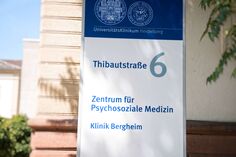CENTRAL OXYTOCIN EFFECTS ON CHRONIC PAIN
Principal Investigator: Prof. Dr. S.C. Herpertz, Investigator: Dr. M. Rashidi
Co-worker: K. Mayer
Funding period: 2020 – 2023
Funding: Deutsche Forschungsgemeinschaft (DFG) (SFB-1158)
During the first funding period of our project, we investigated the effects of intranasally administered oxytocin on brain mechanisms that mediate pain perception, pain sensitization, and pain anticipation in acute and chronic pain using a randomized double-blind, placebo-controlled group design. By employing a classical conditioning paradigm and using functional magnetic resonance imaging (fMRI), we observed that oxytocin reduced pain sensitization across repeated application of thermal pain stimuli via the anterior insula and enhanced associative learning via the posterior insula in humans.
In the second funding period, we currently investigate how social support can moulate the effects of oxytocin on chronic pain mechanisms. Positive social interactions and particularly social support are known to reduce pain experiences in response to painful stimuli and our previous research in humans and rodents suggests that oxytocinergic mechanisms play a critical role in this process. We have developed a new experimental paradigm in which an image of a supportive person or a stranger will be shown to participants as a contextual cue while they perform a classical conditioning task. We are particularly interested to know whether social support reinforces the expected beneficial effect of oxytocin in pain-free individuals and in patients with chronic low-back pain by modulating prefronto-insular coupling.
In another experimental task, we want to investigate the effects of oxytocin and social support on fear of movement. According to the fear avoidance model of chronic pain, pain-related fear is a major risk factor to develop and maintain chronic pain particularly through attentional processes and avoidant behavior.. In this experiment, we want to identify the brain mechanisms in pain-free individuals as well as in patients with chronic low-back pain underlying the buffering effect of social support on forming fear associations and whether oxytocin exerts facilitating effects on fear learning in the context of social support. We expect oxytocin to reduce fear associations via enhancing functional coupling of the medial prefrontal cortex with-insula and amygdala.



